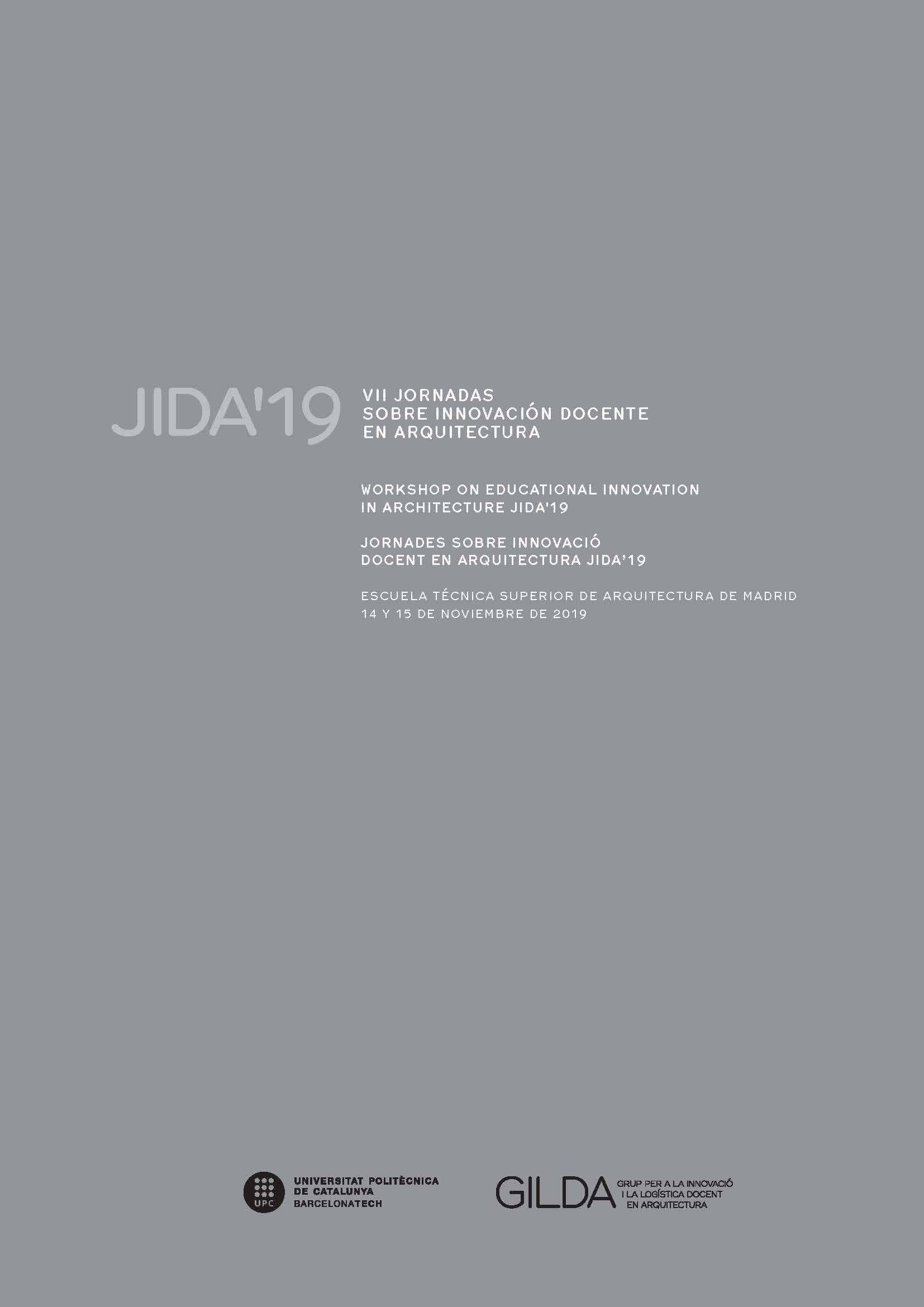Fictional Architecture: Lateral Thinking for Social Design of Space
DOI:
https://doi.org/10.5821/jida.2019.8187Abstract
This article shows a pedagogical experience that puts into practice speculative design tools developed with university degree students in art and design. It is an approach to critical design that tries to avoid the production of space or objects within the conventions of the market to bet on creations that mobilize the debate around fundamental issues that deserve our concern and commitment. To do so, strategies are used that go beyond the limits of design and that propose a narrative dialogue with reality. Therefore, the tools used deepen the ability to enunciate groundbreaking messages regarding the dominant narratives of the future, often loaded with social injustices not visible and focused on the privileges of the Western world. The method demonstrates a lateral approach to the creative fact that enhances social values.References
AUGER, J.H. (2012). Why Robot? Speculative Design, the Domestication of Technology and the Considered Future. Tesis doctoral. Londres: The Royal College of Art. <https://www.researchgate.net/publication/323639975_Why_Robot_Speculative_design_the_domestication_of_technology_and_the_considered_future> [Consulta: 15 de mayo 2019]
BARAD, K. (2003). “Posthumanist performativity: Toward an understanding of how matter comes to matter†en Signs: Journal of women in culture and society, vol 28, issue 3, p 801-831.
BLEECKER, J. (2009). Design Fiction. A short Essay on Design, Science, Fact and Fiction. San Francisco: Near Future Laboratory.
BRUGELLIS, P., PETTENA, G. y SALVADORE, A. (2017). Radical Utopies: Archizoom, Buti, 9999, Pettena, Superstudio, Ufo, Zziggurat. Macerata: Quodlibet.
BUCHANAN, R. (2004). “Human-Centered Design: Changing Perspectives on Design Education in the East and West†en Design Issues, vol 20, issue 1, p 30-39.
CANDY, S. (2010). The Futures of Everyday Life: Politics and the Design of Experiential Scenarios. Tesis doctoral. Manoa: University of Hawai. <https://www.researchgate.net/publication/305280378_The_Futures_of_Everyday_Life_Politics_and_the_Design_of_Experiential_Scenarios> [Consulta: 15 de mayo 2019]
CLARKE, A.J. (2018). “Fail Again, Fail Better†en Victor Papanek: The Politics of Design. Weil am Rhein: Vitra Design Museum, p 14-25.
COOK, P. (1999). Archigram. New York City: Princeton Architectural Press.
CROSS, N., DORST, K. y ROOZENBURG, N. (ed.). (1992). Research in Design Thinking. Delft: Delft University Press.
DE BONO, E. (1967). The use of lateral thinking. London: Cape.
DE BONO, E. (1985). Six thinking hats: An Essential Approach to Business Management. New York City: Little Brown & Company.
DUNNE, A. (2008). Hertzian Tales. Electronic Products, Aesthetic Experience and Critical Design. Cambridge: MIT Press.
DUNNE, A y RABY, F. (2013). Speculative Everything. Design, Fiction, and Social Dreaming. Cambridge: MIT Press.
FEIREISS, L. y KLANTEN, R. (2009). Beyond architecture: Imaginative Buildings and Fictional Cities. Berlin: Gestalten.
FERGUSON, N. (2011). Virtual History: Alternatives and Counterfactuals. London: Penguin Books.
GORDON, W.J.J. (1961). Synectics, the Development of Creative Capacity. New York City: Harper.
H. FALAGAN, D. (2018) “Disseny, educació i societat. Conversa amb Curro Claret†en El disseny qüestiona. Barcelona: Edicions de l’Escola Massana - Edivi, p. 40.
KRIPKE, S.A. (1975). “Outline of a Theory of Truth†en Journal of Philosophy, vol 72, issue 19, p 690–716.
LATOUR, B. (1996). “On actor-network theory: A few clarifications†en Soziale Welt, vol 47, issue 4, p. 369-381.
MALPASS, M. (2017). Critical Design in Context. History, Theory, and Practice. London: Bloomsbury Academic.
MANAUGH, G. (2009). The BLDGBLOG Book. Architectural Conjeture, Urban Speculation, Landscape Futures. San Francisco: Chronicle Books.






















